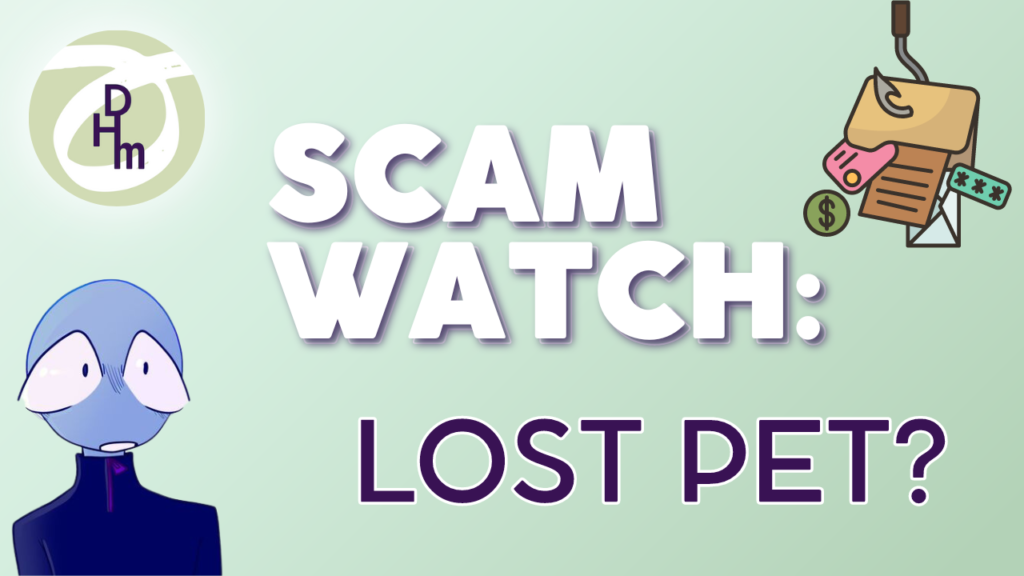Lost Pets: When NOT to Share
(Trigger warning: images of injured pets below.)
Some lost pet posts are actually a type of scam that preys on people’s compassion for animals.
Usually, the scammers will post a photo of a badly injured pet on a social media platform such as Facebook or Nextdoor. The image will be especially shocking or sad to pull on the heartstrings of those who see it.

The post will include an urgent plea to share it in order to help find the pet’s owner quickly. Once the post has been shared enough times, the scammer will edit the post to include a malicious link or service. (Notice the similar language in both posts.)
The malicious link could lead to a website that steals personal information, such as credit card numbers or passwords. It could also lead to a fake rental ad or a survey that promises a cash prize. In some cases, the scammer may even ask for money to help pay for the pet’s medical bills.
Here are some tips to help you avoid lost pet social media scams:
Be suspicious of any post that asks you to share it without providing any additional information. Legitimately lost pet posts will usually include the pet’s breed and the location they were found. Be suspicious when the picture appears shocking or especially sad.
Check the poster’s social media profile before sharing. If the poster’s profile is new or has very few friends, it’s more likely to be a scam. Check the comments in any photos on the user’s profile pictures for more clues if they are a real person.
If you’re concerned about a lost pet post, contact your local animal shelter or animal control agency. They will be able to verify whether the pet is actually lost and help you find the owner.

If you you’ve already shared a post or think you’ve been scammed, there are a few things you can do:
- If you’ve shared the post, you can also unshare it. It’s important not to spread the scam around to your friends and family.
- Don’t click on any links in the post. Even if the link looks like it goes to a legitimate website, it could be a scam.
- Report the scam to the social media platform where you saw it. Most social media platforms have policies against scams and fraud.
- File a complaint with the Federal Trade Commission (FTC). The FTC can help you recover your money and prevent other people from being scammed.
- Contact your bank or credit card company. They may be able to block the scammer’s payment and refund your money.
We love talking about our pets. Check out this blog post about our favorite pet products.
Want help making this change to your system? Digital Helpmates offers one-on-one tech tutoring to home and business users at affordable prices. Find out more about our dedicated tech tutoring and Jumpstart Office Teams at https://digitalhelpmates.com.
Watch this on our YouTube Channel: “Tech Tips for the Technically Clueless”

